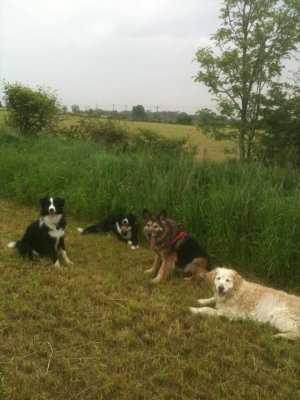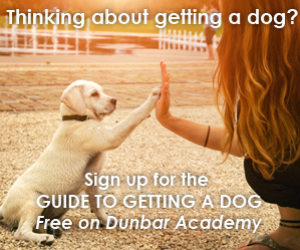‘I Want, I Want’ or ‘Please May I?’

You’ve waited for the arrival date for ages. You’ve bought toys, squishy beds, puppy food & a cute leash & collar set. When your bundle of fur arrives, you could never imagine it would ever cause you stress or hassle. No-one ever starts off with a puppy thinking ‘one day, my dog will suffer from a debilitating condition, which will limit our enjoyment of him & affect our whole family in the extreme’. The diagnosis is that increasingly far too many dogs I work with suffer from a chronic lack of self-control.
The first phone call for help usually includes phrases such as ‘demands attention all the time’, ‘people don’t visit us much anymore’, ‘embarrassed to take him out with us now’ & ‘wanted to have him join in family activities’. The illusion of owning the family dog who is mannerly, calm, easy to bring places, the dog who others admire & think ‘that’s the kind of dog we’d like someday’ have been shattered. And all because the dog in questions hasn’t been taught one simple skill, to settle regardless of what’s going on around him.
Dogs are born egotists. There is no such thing as a selfless dog. They base all their strategies in life on ‘what’s worth my while?’ versus ‘what’s not worth my while?’ & they choose behaviours weighted in their own favour each & every time. Most new puppies try to engage in household activities, whether this is appropriate or not. Somewhere in the mix of loving them, cuddling them, feeding them, playing with them & even training them, owners forget to teach their dogs a really important life lesson. That just because something is happening, doesn’t mean he should assume he can get involved.
Now fast forward a year & the problem dog I’m called in to help is one who can’t cope with restraint & who throws tantrums (vocal or physical) if instant gratification can’t be achieved. I refer to these dogs as ‘I want, I want’ dogs. Day to day, this manifests itself in leash frustration, lunging & pulling on leash, attention seeking behaviours at home, mugging guests, interfering with people, kids, dogs, picnics out & about & generally acting like a spoilt brat. All because the family never taught the dog to relax, calm down & settle during times of activity & excitement.
Creating a ‘please may I?‘ dog is simple. Firstly, crate trained or gate trained dogs are more likely to have self control skills than those who were never crated/gated, but only if the crate/gate is used in the right way. It’s important of course for every dog to learn to settle when no-one is around (alone time), but I believe even more important is the skill of settling when there are things going on. With my puppies, since I don’t have kids to help in the form of excitement or activity, I deliberately play with my older dogs in front of the crated pup & ignore the tantrums for attention. Very quickly puppy learns to take his turn when I allow him out to play. At other times, there is no point wasting energy on screaming or jumping up & down, as the activity going on clearly has nothing to do with him. In addition, I gate my puppies or adult learners when people visit & only allow them to greet, when the novelty of the guest has worn off & they are calm & relaxed.
I use tasty stuffed Kongs to keep puppy occupied while he’s tied to a park bench, one foot on his leash about 1.5 feet from his collar, to restrict movement, the other foot holding the Kong steady. This encourages settle down, while dogs pass by or play off leash, while the local kids play on the village green some distance away or at my local skate park. I then gradually decrease the distance until the excitement is close by. I do this same ‘settle’ exercise outside pubs & cafes. Puppy needs to know a waitress bringing coffee, or the children chattering at the next table has nothing to do with him. He doesn’t need to investigate every distraction which passes by. Since I clicker train, any form of engagement or trying to get my attention by offering behaviour, whilst very cute, is not the game we’re playing right now. Instead, I ignore my dog. When he’s settled, is calm & ‘switched off’, the Kong appears. If my dog gets up, the Kong is removed until he lies down & switches off again.
A new puppy is often involved in everything the owner does. Under the guise of socialisation, they are brought everywhere & given very little restriction or guidance. In the process of showing off the cute new family addition & encouraging them meet & greet, owners clearly don’t realise the irony that a little more restriction & exclusion early on, results in a dog who can be given far more freedom & involvement in the long term. Dog’s who don’t assume the world is theirs for the taking are welcome more places, & are easier to own. These simple exercises can be included into the first year of your dogs life & will help create a ‘please may I?’ dog as opposed to the spoilt furry brat shouting ‘I want, I want’ when ever anything takes his fancy.




